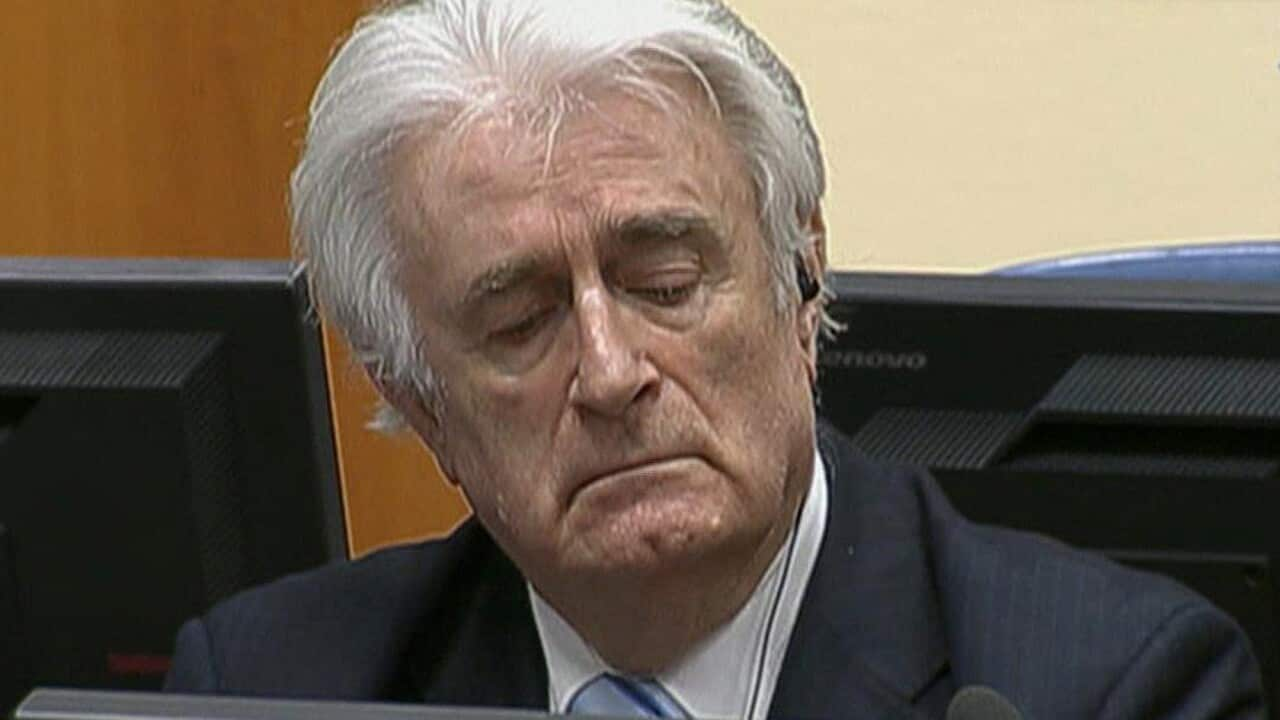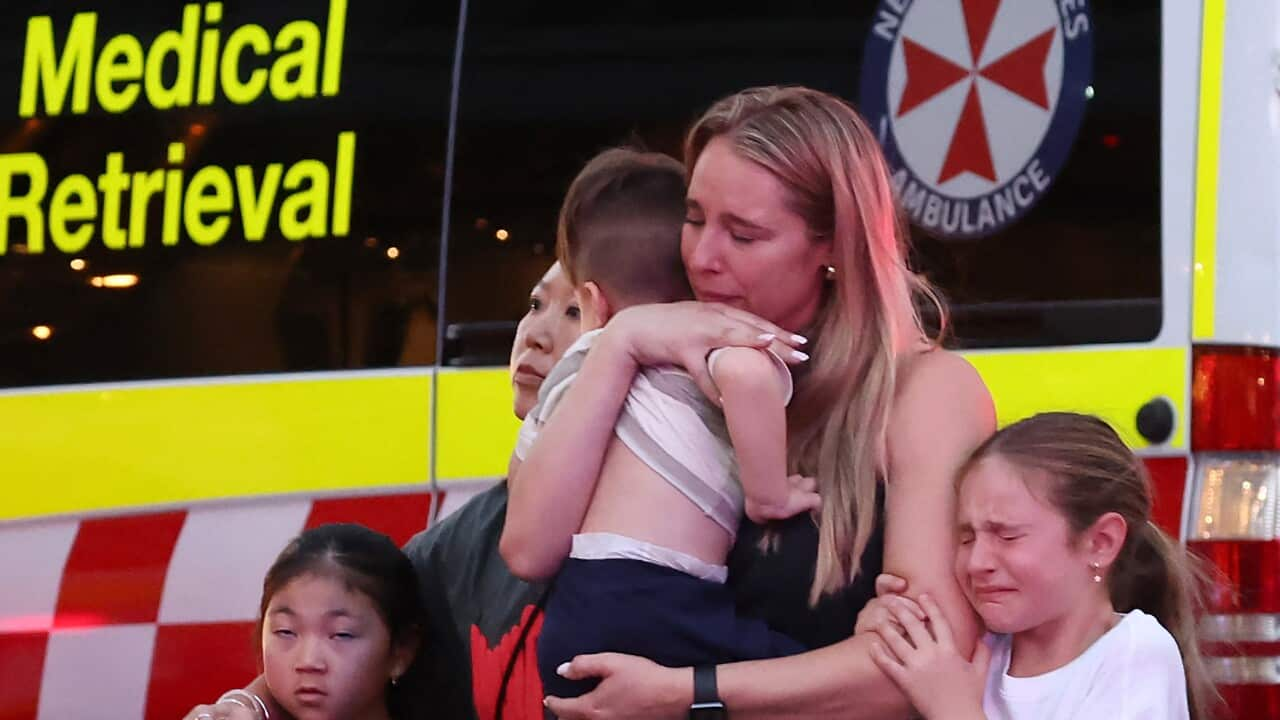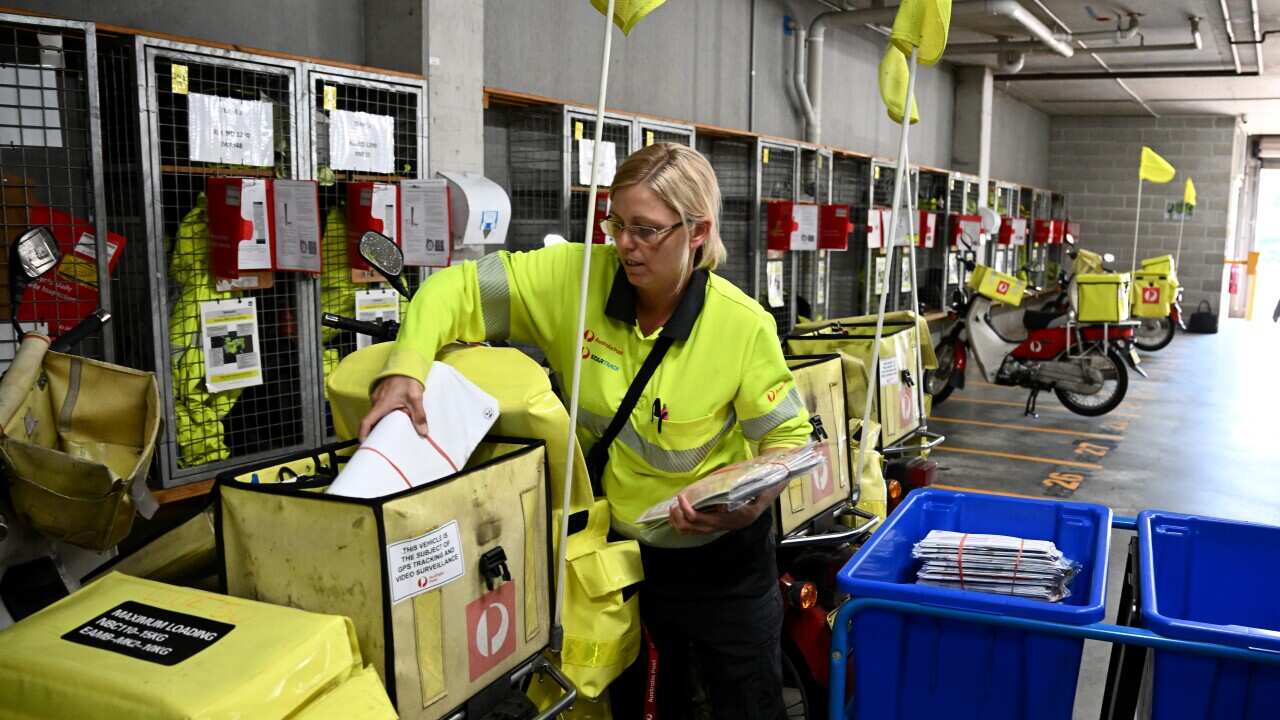Australian survivors and relatives of victims of the Bosnian War's Srebrenica massacre have responded to Radovan Karadzic being found guilty of genocide in Srebrenica and of other war crimes during the war in the 1990s.
Saidin Salkic was just 12-years-old and seeking refuge in Potocari, near Srebrenica, in eastern Bosnia.
He was there with his mother and sister, along with thousands of other Bosnian Muslims, in that fateful July of 1995.
His father had been killed earlier in the war.
Related reading

Radovan Karadzic jailed for 40 years for Srebrenica genocide
Mr Salkic, now grown up and living in Melbourne, says what the United Nations had declared a safe zone soon became anything but that.
"They'd taken me away from my family and put me on the side of the road with the people who never came back," he said.
"And my mum started pulling me back... and, eventually, through a lot of hustle and bustle - they almost wanted to shoot us on the spot, but I suppose it was way too public... we got to get away."
Bosnian Serb troops overran the enclave.
"One life sentence for so many lives lost would have been at least some symbolic justice."
Although Mr Salkic's life was spared, about 8,000 Muslim men and boys were rounded up and killed in Srebrenica over several days.
It has been described as one of the worst atrocities in Europe since World War II.
Mr Salkic says Radovan Karazdic's conviction means little to the survivors and the families of the victims.
"This sentence they handed out, to be honest, means very little to me and those who have gone through what they've gone through - and through what they will be going [through] for the rest of their lives."
Haroz Halilovich was not living in Srebrenica at the time of the mass killings. But he, like many others, lost family members and friends.
Mr Halilovich says he, too, does not think the sentence goes far enough.
"I wish, also, that the sentence of 40 years was a life sentence. Purely symbolically, it would have meant more, because he did directly order, or inspired or knew of, hundreds of thousands of deaths. So, one life sentence for so many lives lost would have been at least some symbolic justice."
Mr Halilovich researches the impact the conflict has had on communities and in the diaspora at Melbourne's RMIT University.
"In Saint Albans, here in Melbourne, almost every second Bosnian family is a fatherless family - you know, families where significant male family members, they've perished," he said.
"There are mothers without sons, wives without husbands, children without fathers. And this is the reality of the Bosnian diaspora today, not only in Australia but in many countries."
Related reading
Sarajevo siege survivors tell their stories
International-law expert Gideon Boas, also in Melbourne, formerly assisted Karadzic's defence.
Mr Boas says not everyone will welcome the guilty verdict, though.
"It's always been felt by Serbs, including Bosnian Serbs, that the Yugoslav tribunal was set up to prosecute Serbs and a great deal more Serbs have been prosecuted than Muslims and Croats, and that's a fact," he said.
"On the other hand, they orchestrated a large number of crimes, and calling to account someone like Radovan Karadzic is crucial. It's just as crucial as calling to account other leaders - Bosnian Croats and Bosnian Muslims.
"There have been trials for those people as well, but it's understandable that Bosnian Serbs who are here, or Serbs who are here, will feel as though this is just another example of the international community really going after the Serbs and ignoring their suffering. And I understand that."
Saidan Salkic says the United Nations also failed the victims when it mattered most.
"It's too late, nothing can heal the wounds. The wounds would have been healed if they had been prevented from happening by the people who were supposed to do it by law - by UN law."









